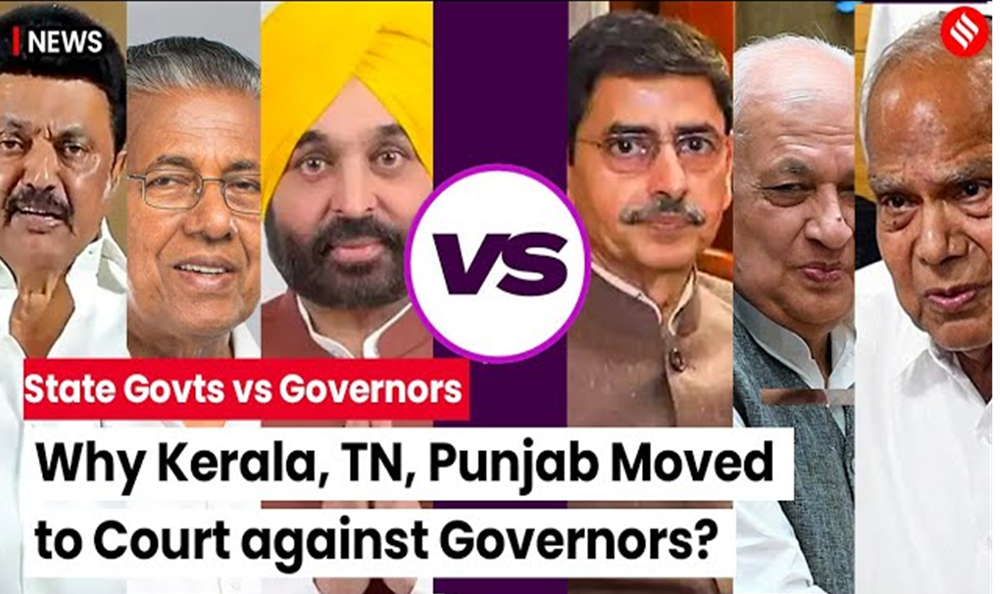Description

Copyright infringement not intended
Picture Courtesy: Indian Express
Context: Several states accuse Governors of unreasonably withholding crucial Bills, leading to a constitutional crisis that affects areas including public health, higher education, Lokayukta (anti-corruption ombudsman), and cooperative societies.
Details
- Several states express concerns over Governors' perceived reluctance to approve crucial Bills, leading to a delay in implementing laws vital for public welfare, including those related to public health, higher education, Lokayukta, and cooperative societies.
- The delay in passing Bills raises fears of a constitutional crisis, as essential areas like public health and anti-corruption measures remain inadequately addressed, potentially impacting citizens' well-being and governance integrity.
- Urgent action is required to resolve the deadlock, emphasizing the necessity for Governors and state authorities to collaborate efficiently, ensuring the timely passage of these Bills to uphold democratic principles and meet the pressing needs of the public.

Constitutional Provisions
- Article 200 of the Indian Constitution outlines the Governor's options when presented with a Bill passed by the state legislature. The Governor can:
- Approve the Bill, allowing it to become law.
- Refrain from approving the Bill, except in the case of Money Bills.
- If the Bill affects the power of judicial review of the High Court, the Governor can send it for the President's consideration.
- If the Governor withholds assent, they must return the Bill to the Legislative Assembly, advising reconsideration. The Governor acts based on the advice of the Council of Ministers.
- The Constitution states Bills should be returned "as soon as possible," but it does not specify a timeframe.
Legal Interpretation
- The Supreme Court interpreted "as soon as possible" to mean "as early as practicable without avoidable delay" in a 1972 judgment.
- In a 2020 case, it was suggested that a 'reasonable time' for the process would be three months, although this is not an explicit constitutional provision.
Demands and Legal Challenges
- States are demanding a clear time limit for Governors to assent or return Bills to avoid indefinite delays.
- Some states, like Kerala, have urged the Supreme Court to review previous judgments that did not specify a time limit for Governors to decide on Bills.
Conclusion
- The situation raises questions about the balance of power between elected state governments and appointed Governors, highlighting the need for clarity and limitations on the discretionary powers of Governors to ensure the smooth functioning of the democratic process in India.
.jpg)
Must Read Articles:
Governor: https://www.iasgyan.in/daily-current-affairs/governor-30
Appointments of Governors: https://www.iasgyan.in/daily-current-affairs/appointments-of-governors
|
PRACTICE QUESTION
Q. What are the discretionary powers of Governors in India, and how have they evolved over time to strike a balance between upholding democratic principles and preventing potential misuse of these powers?
|









